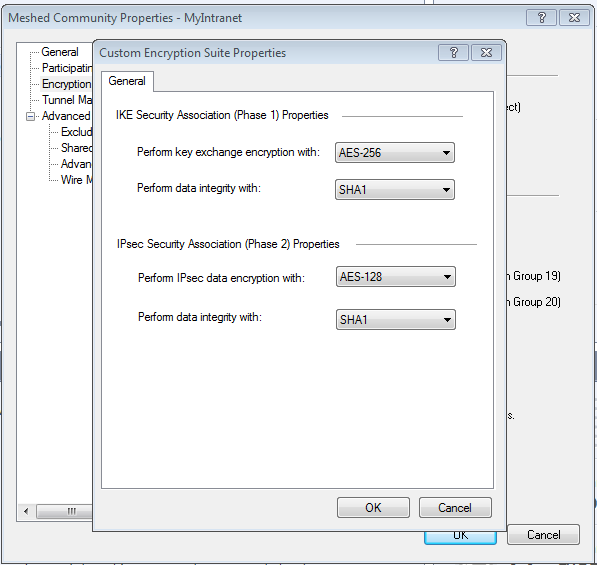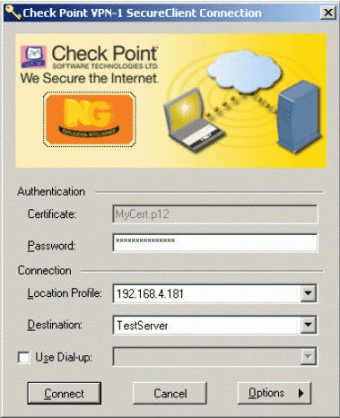

Other companies love Check Point, too! They have their own SmartCenter Server (or Multi-Domain Security Management) as central Check Point security management. The certificate based VPN tunnel is now up and working! EXTERNALLY MANAGED Verify your VPN certificate and IPsec VPN community.Īfter you have configured the VPN topology for your VPN gateways you should add them to your VPN community.Īdd your VPN gateways to your VPN community. Depending on where you configure it your graphics might look a bit different to the screen shots used here. Please note that you can either configure the VPN topology in wizard mode when creating a new Check Point object or in classic mode when the gateway object is already existing. and select the VPN encryption domain of the specific gateway. Leave the checkbox for pre-shared keys unchecked!Īctivate IPsec VPN on your participant gateways if it isn’t already. Therefore, when its IP address changes it will automatically re-establish the VPN tunnel. We’ll be using a permanent VPN tunnel here, because the Remote Office is a dynamically assigned IP address (DAIP) gateway.

Check Point does it all for you.Įstablishing a certificate based VPN in centrally managed Check Point environments is as easy as 1-2-3.įirst, create a VPN community for certificate based VPNs (Mesh or Star topology)Ĭonfigure your preferred VPN encryption settings for Phase 1 (IKE) and Phase 2 (IPsec). This InternalCA enables the global use of certificates between all connected components and gateways right out-of-the-box.Ĭheck Point automatically generates certificates when a new Check Point object is created, so you don’t have to take care of certificate handling. This central management approach makes it so easy to deploy security settings to all connected gateways with a single click on policy installation.Ĭheck Point’s security management is called SmartCenter Server (or Multi-Domain Security Management) and has an internal certificate authority built-in. Setup: Management: Check Point SmartCenter Gateway: Check Point Firewall & VPN Remote Office: Check Point 1100 ApplianceĬheck Point is well-known for its superior security management solution to which all Check Point gateways are connected. When working with VPN tunnels between Check Point Firewalls gateways there is absolutely no reason not to use VPN certificates. This is because it’s much quicker and really easy to set up a VPN with a simple pre-shared key than having to deal with certificates and a certificate authority (CA).īut is it really that hard to implement a way better security architecture based on certificates? This article shows how simple it can be when you work with Check Point Firewall & VPN security gateways. In many cases these keys were even forgotten by the administrators in charge of keeping the network secure because once configured for the VPN tunnel they are not needed anymore. However, most VPN site-to-site setups are still based on simple, long lasting pre-shared keys. Therefore certificates are always best practice in enterprise grade security environments. Ouch!Įvery security expert knows how much better certificates are for gaining high security levels. When it comes to VPN security many security experts first think of encryption algorithms, perfect forward secrecy (PFS), Diffie-Hellman groups… and a long pre-shared key (PSK).

Also it’s critical to avoid any loss of data sovereignty. Securing virtual private networks (VPNs) in enterprise Site-to-Site environments is an important task for keeping the trusted network and data protected. As part of the Indeni Automation Platform, customers have access to Indeni Insight which benchmarks adoption of the Check Point capabilities and user behavior to adhere to ITIL best practices. To keep your business online and ensure critical devices, such as Check Point firewalls, meet operational excellence standards it is helpful to compare your environment to a third party data set.
#Check point vpn vs checkpoint.vpn how to
How To Set Up Certificate Based VPNs with Check Point Appliances: CPFW Config Guide



 0 kommentar(er)
0 kommentar(er)
